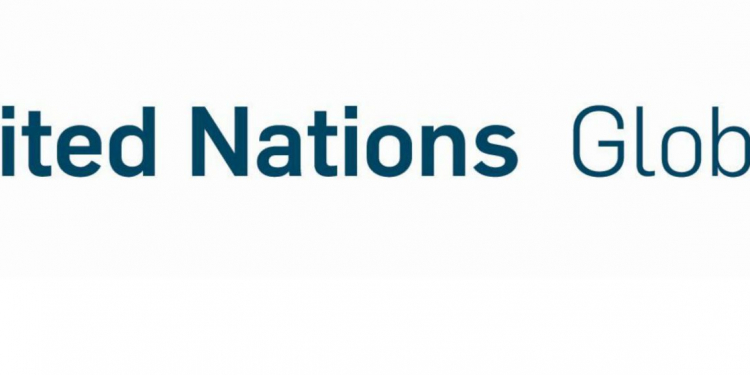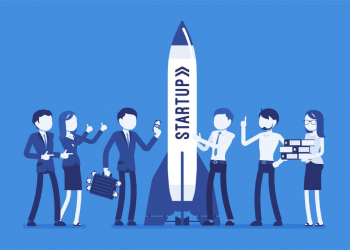The FINANCIAL — Disruptive technologies and digital infrastructure have the potential to solve some of the world’s most pressing risks and to transform industries. These include safeguarding the planet’s soil and water, and improving inequality and education.
This is the main conclusion of the 2017 Global Opportunity Report, released on January 24 by DNV GL, Sustainia and the United Nations Global Compact. The report also demonstrates the commitment of the global business community towards taking action on the UN Sustainable Development Goals (SDGs) and the 2030 agenda.
The Global Opportunity Report is an opportunity and solution based response to the World Economic Forum’s Global Risk Report. It enables leaders to navigate new markets, new business opportunities and solutions. For the 2017 edition, 5,500 leaders from within business, government and civil society across five continents provided their insights and identified and ranked 15 sustainability opportunities. The report showcases 120 practical projects and solutions from around the globe that range from micro grids that make cities more resilient to climate change, to bacteria that bring depleted soil back to life, to peer-to-peer trading, and inviting ethical hackers to test cyber security, according to UN Global Compact.
The 2017 report’s top findings are:
Smart water technology is perceived as the biggest market opportunity.
Providing e-learning to conflict-affected areas is the second-biggest opportunity, giving business the opportunity to contribute to creating more peaceful societies.
Rising trust in digital technologies such as blockchain technology and artificial intelligence can help combat many of the global risks such as cybercrime and rising inequality.
Leaders agree that rising inequality is the biggest of the five risks in the report.
Smart water tech uncovers new market opportunities
Smart water technology took first place in this year’s rankings, being deemed the most impactful and applicable of all 15 opportunities. Technology that automatically saves and reuses water protects this scarce resource while creating sustainable options for citizens. This finding reaffirms a trend that is present in all Global Opportunity Reports to date— addressing issues found in the SDGs, such as providing and managing access to water, can create a myriad of market opportunities for business. Lise Kingo, CEO and Executive Director of the UN Global Compact affirms:
“The Sustainable Development Goals not only provide a clear path to a sustainable world which leaves nobody behind, they also outline new markets and opportunities for responsible business. The Global Opportunity Report demonstrates how companies around the world are developing and deploying innovative technologies and business models to address the needs of our planet and society to achieve the SDGs. It is time for all companies to figure out how their own operations, products and services can play a role in creating the world we want.”
Dare to think big, digital and new combinations
The report’s unequivocal take-away message is that businesses are ready to welcome cutting-edge digital technology and seize opportunities that accelerate sustainable development. For example, 38 per cent of the leaders asked in the survey stated that they are likely to grasp the opportunity of intelligent cyber security, which is driven by artificial intelligence. DNV GL CEO and President Remi Eriksen is not surprised that digitalisation is the common denominator throughout the report. He believes digitalisation makes most things possible and expects to see a rapid technology uptake in the next years:
“I am certain that over the next five years, concepts such as automation, machine learning, blockchain and cyber-physical systems will acquire real meaning and scale. Most of the technologies are already familiar to us. What’s new is the combination of advanced technologies from previously separate domains – like mechanical, biological, electrical, optical and digital. New combinations, and the speed of implementation, will be the building blocks of the new era.”
Business can help meet the demand for education in conflict-afflicted areas
Delivering digital learning to children in conflict zones was ranked the second-highest opportunity in the 2017 report. This is based on the perceived impact to society and the ability of business to immediately pursue the opportunity. The report reveals that business leaders are ready to step up and enter high-risk areas to bring much-needed digital learning, despite obvious hurdles such as language barriers, remote users and limited infrastructure. With 50 per cent of all out-of-school children residing in conflict-affected areas, this opportunity illustrates the potential for the private sector to use digital technology to advance a public good. According to Erik Rasmussen, CEO and founder of Sustainia, this discovery is a symptom of a new global business approach:
“Technology is currently used by business to streamline existing industries and win new markets. The report’s findings show that business leaders from all corners of the world are ready to use technology for sustainable disruption – to use technology to deliver on the UN’s Sustainable Development Goals”.































Discussion about this post